Sometimes our church traditions can get in the way of doing what we’re supposed to be doing. For example, I am not convinced that it is wise for most churches to have buildings, meet on Sunday morning, and be non-profit.
Sure, there are times when these things make sense. But in many ways today, such practices are only getting in the way of reaching out to unbelievers and adequately making disciples.
Good and Bad Church Traditions
So how can we discern good and helpful traditions from bad ones?
One good way is to practice something I learned from my two-year old: ask “Why?” a lot.

To discover if a certain church practice should be continued or not, ask “Why?” about it seven times.
If, in asking “Why?” seven times, you don’t get to a good reason, you might want to consider dumping whatever it was you were asking “Why?” about.
And if you ever answer “Because the Bible says so” then ask “Where?” and “Is that really what that verse means?”
This is often good to do with a group of people because they can help you answer the questions, and tell you when an answer is not valid. You may have to “tweak” your question asking a bit to get at the root of the issue, but the point is to ruthlessly examine and question everything. It may look like this:
Here’s how it works:
Asking Why? about Sunday Church
Statement: The church meets on Sunday morning.
Why?
Possible answers:
It’s the Sabbath. (No, it isn’t. Saturday is.)
It’s the day Jesus rose from the dead (So? Where does it say we have to meet on the day Jesus rose from the dead? Doesn’t Paul say all days are equal?)
It’s a day that everybody has off. (Not any more. If we’re trying to meet when most people are free, would Tuesday night be better? And for that matter, why do we want to meet when most people can meet? Furthermore, which people are “most people?”)
See how this works?
Just keep questioning everything you do in the church, and with some careful, critical thinking, you come to see that most of what the church does, it does by tradition: just because we’ve always done it that way.
This frees us up to realize that if there is a better way to make disciples, we should do it, even if we have to abandon most of our traditions.
Asking Why About Preaching
What if we asked “why” about preaching?
Why do we have preaching?
So we can teach the Bible and make disciples.
Ok. Why? Is preaching the best way to teach the Bible and make disciples?
Well, it is not the only way (or even the best way) to do either.
Ok. So if there are better ways, back to the original question: Why do we have preaching?
Well, because the pastor has the spiritual gift of teaching and he should get to use his gift.
 Ok. So why is the pastor the one who gets to use the majority of the church service using his gift, and why is preaching the best way to use the gift of teaching?
Ok. So why is the pastor the one who gets to use the majority of the church service using his gift, and why is preaching the best way to use the gift of teaching?
Well, other people get to use their gifts too, but the pastor went to Seminary, and we’re paying him to preach, and preaching is when he can reach the most people all at once with biblical truth. If he had to use his gifts one-on-one, it would take hundreds of hours of week to disseminate the same biblical truth. And besides, Paul told Timothy to “Preach the Word.”
I see. Each of those statements is going to need it’s own “Why?” question: Why did the pastor have to go to seminary to get his training to use his gift when we don’t send others to seminary to get training to practice their gifts? Why are we paying the pastor to use his gift when we don’t pay others to use theirs? Why do we need to reach a lot of people all at once with biblical truth? (Which returns to the earlier question of whether or not preaching is the best way to make disciples.) And why do we need to follow today the same instruction that Paul gave Timothy? And related to that, why do we think think the practice of “preaching” as it is done today is the same thing Paul meant when he told Timothy to “preach” the Word? If we do have to follow Paul’s instruction to Timothy (which isn’t yet certain), why don’t we figure out what Paul meant by “preach the Word” and then do that?
This line of questioning goes on and on.
The end result is that we eventually see that there are no good reasons for why churches do most of what they do. Often, as we try to defend the practices and traditions of the church, we find ourselves talking in circles and arguing from the basis of the way things have always been done, which keeps us from thinking about how things could be done.



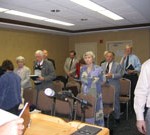
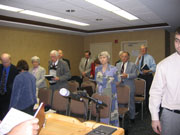
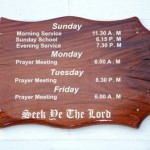
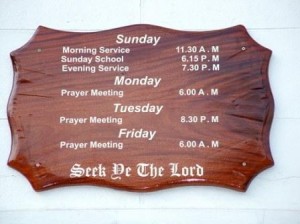 I am not sure how the hour from 11:00-12:00 on Sunday morning (or whenever you “go to church”) became known as “
I am not sure how the hour from 11:00-12:00 on Sunday morning (or whenever you “go to church”) became known as “
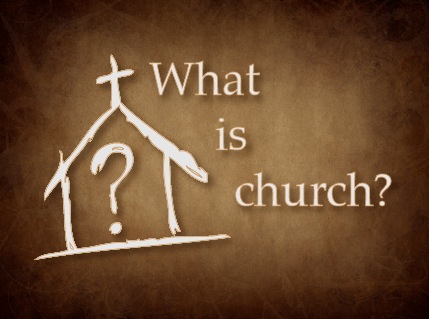

 Seeker sensitive churches try to correct the weakness of teaching churches by making their church programs and services more welcoming to unbelievers. They seem to do a great job at this.
Seeker sensitive churches try to correct the weakness of teaching churches by making their church programs and services more welcoming to unbelievers. They seem to do a great job at this.